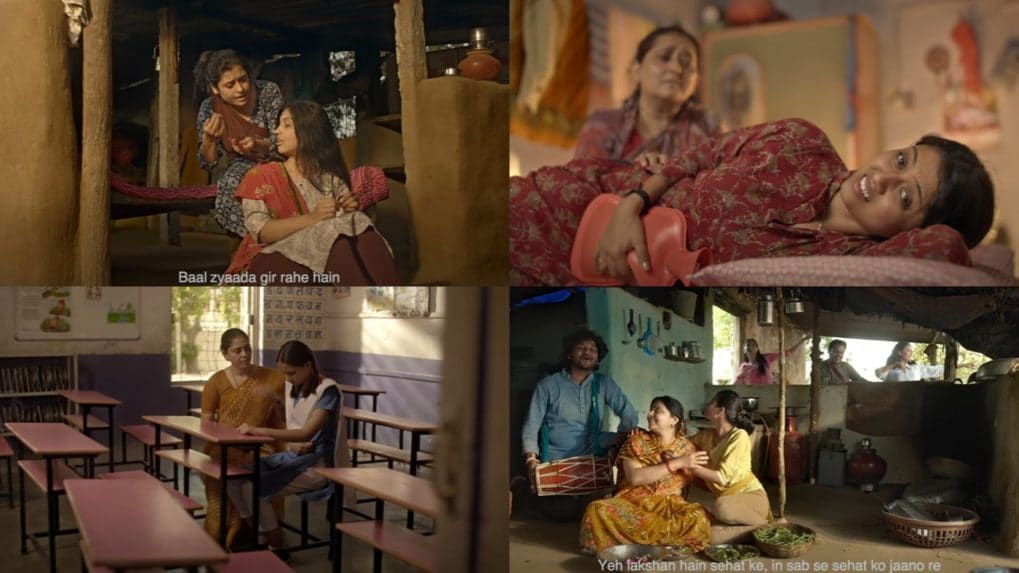World Menstrual Hygiene day: Tata Trusts' new campaign flips the narrative around menstruation
This campaign educates the audience about menstruation being an indicator of health, far removed from age-old beliefs that link it to fertility and marriage.
ADVERTISEMENT
On the occasion of World Menstrual Hygiene Day, Tata Trusts has unveiled a campaign to reframe how India understands menstruation. Every month, roughly 355 million people in India menstruate, drawing societal stigma and burdened by age-old beliefs that link periods to fertility and marriage.
This campaign flips that narrative, inviting families to recognize menstruation for being an indicator of health.
With research conducted across rural regions in Jharkhand, Uttar Pradesh and Gujarat, this campaign is anchored in a combination of social and behaviour change communication (SBCC) across seven states, with a series of cause-driven campaign films and development interventions on-ground that shift the ways in which communities understand, feel and talk about menstruation, stated the charitable trust.
The research explored women’s lived realities of restrictions in matters of personal hygiene and healthy menstrual practices. It also uncovered social norms surrounding menstruation, with mothers avoiding the conversation, fearing that their daughters will be seen as ‘ready for marriage’.
Men shared limited menstrual awareness, often seeing it through the lens of household disruptions – like how it would affect women’s cooking. However, they did show support when prompted, including getting their wives pads and taking them to the doctor when needed, further added the trust in its statement.
Divyang Waghela, head – water, sanitation and hygiene (WASH), Tata Trusts, commented, “The lack of reliable access to water and private spaces – whether to bathe, change, or dispose pads – makes it difficult for girls to manage their periods with safety and dignity. Lack of infrastructure and agency compound this problem. Built on the Trusts’ rich work in menstrual health and hygiene, and considering how deeply entrenched stigmas remain, we strive to tackle barriers around infrastructure, belief systems, and environments perpetuating them. Through this, girls can view periods as a normal part of health, not something to be hidden away.”
Running across the series of films as a common thread is a jingle, ‘Maheena Aa gaya’ (In this case, Maheena – month – refers to Periods, translating to, “I’ve got my periods”).
Deepshikha Surendran, head of brand and marketing communications, Tata Trusts, said, "Through this social behaviour change communication campaign, using on-ground interventions and awareness films, we’re encouraging communities to see periods as a barometer of health and to respond with empathy and not misplaced ideas of sexual maturity. “Maheena aa gaya” is more than just flipping a calendar page – it’s a symbolic call to action, urging families to rethink what a period means, which we hope will nudge a generational, cultural shift in how menstruation is supported.”
The hero film is supported by a series of films specific to key segments of audiences. In one, a mother guides her daughter through her first period, explaining that it’s simply biology, not a sign of readiness for marriage. Another depicts a husband ensuring his wife’s needs during menstruation are met without waiting for her to ask.
In another film, a mother-in-law supports her daughter-in-law, encouraging her to rest and eat iron-rich food while reminding her, "Yeh siraf sehat ka ek lakshan hai” (this is only about health).
Another film targeted the Asha didis and other health workers too.
"We’re not asking people to radically shift their thinking – simply, to understand that a period is just a ‘lakshan’ — a symptom, like hair loss. Capturing this, we created a simple, light film that we shot in people’s aangans and homes, with a powerful, memorable song with a hook rooted in Indian pop culture, offering an important reminder: ‘Maheene ko sirf sehat se jodo’ (link that time of the month – menstruation – to only health),” added creative director Keigan Pinto.

